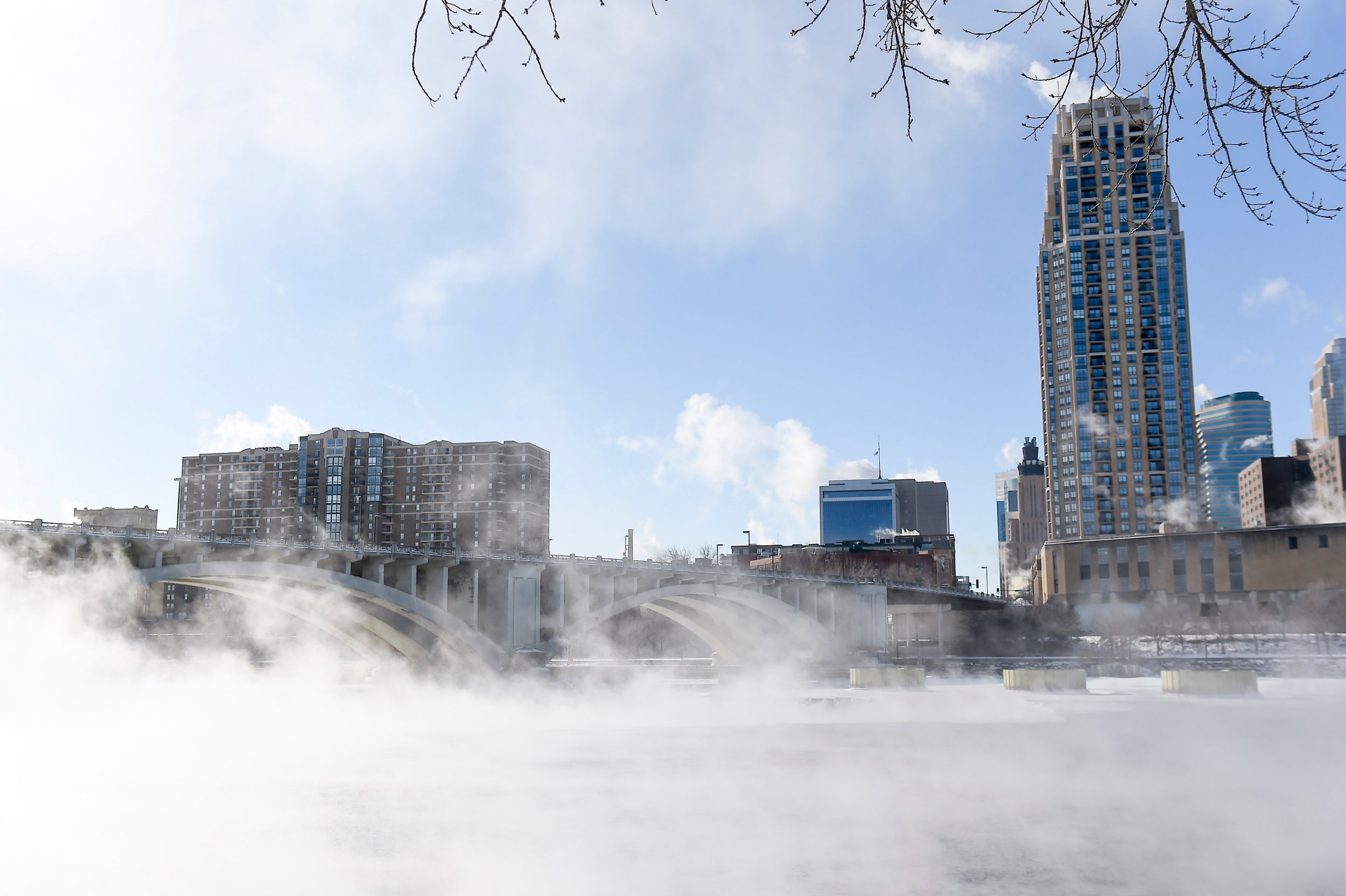US weather: Hell freezes over as polar vortex triggers coldest freeze in a generation
‘It's a brutal day in hell,’ says man working in Hell, Michigan as polar vortex causes town to freeze over

Your support helps us to tell the story
From reproductive rights to climate change to Big Tech, The Independent is on the ground when the story is developing. Whether it's investigating the financials of Elon Musk's pro-Trump PAC or producing our latest documentary, 'The A Word', which shines a light on the American women fighting for reproductive rights, we know how important it is to parse out the facts from the messaging.
At such a critical moment in US history, we need reporters on the ground. Your donation allows us to keep sending journalists to speak to both sides of the story.
The Independent is trusted by Americans across the entire political spectrum. And unlike many other quality news outlets, we choose not to lock Americans out of our reporting and analysis with paywalls. We believe quality journalism should be available to everyone, paid for by those who can afford it.
Your support makes all the difference.At least 12 people have died in record-low temperatures trigged by the polar vortex, which has stretched parts of the nation's infrastructure to breaking point.
And, perhaps suitably, a town in Michigan called Hell has frozen over, according to local reports, with one groundskeeper telling a news outlet, “It’s a brutal day in Hell. It’s colder than hell.”
Thousands of flights have been cancelled, and the US postal service is partially suspended. In Chicago, which has been as cold as the Arctic at times, heavily dressed repair crews hustled to keep public utilities from failing, while officials lit train tracks on fire in order to prevent them from malfunctioning in the historic cold.
The temperature in the nation’s third-largest city dropped to a low of around -30C (-23F), slightly above the city’s lowest-ever reading of -32C (-27F) from January 1985.
At least 12 deaths have been linked to the system, including an elderly Illinois man who was found several hours after he fell trying to get into his home and a University of Iowa student found behind an academic hall several hours before dawn. Elsewhere, a man was struck by a snowplow in the Chicago area, a young couple’s SUV struck another on a snowy road in northern Indiana and a Milwaukee man froze to death in a garage, authorities said.
Downtown Chicago streets were largely deserted after most offices told employees to stay home. Trains and buses operated with few passengers. The hardiest commuters ventured out only after covering nearly every square inch of flesh against the extreme chill, which froze ice crystals on eyelashes and eyebrows in minutes.
The city may have also reportedly been hit with a weather phenomenon called cryoseism, in which it is so cold in a region that water underneath the ground freezes and expands, creating an earthquake-like effect above ground due to cracking rocks.
The Postal Service took the rare step of suspending mail delivery in many places, and in southeastern Minnesota, even the snowplows were idled by the weather.
The bitter cold was the result of a split in the polar vortex, a mass of cold air that normally stays bottled up in the Arctic. The split allowed the air to spill much farther south than usual. In fact, Chicago was colder than the Canadian village of Alert, one of the world’s most northerly inhabited places. Alert, which is 500 miles from the North Pole, reported a temperature that was a couple of degrees higher.
Infrastructure surpassed its limit in many states across the country. A track in the Minneapolis light-rail system cracked, forcing trains to share the remaining track for a few hours.
In Detroit, more than two dozen water mains froze. Customers were connected to other mains to keep water service from being interrupted, Detroit Water and Sewerage spokesman Bryan Peckinpaugh said.
Thousands of utility customers were without electricity after high winds also caused trees and branches to fall into power lines, especially in the south Chicago suburbs. The ComEd utility in northern Illinois said crews restored power to more than 42,000 customers and were working to restore another 9,400.
Additional reporting by AP
Join our commenting forum
Join thought-provoking conversations, follow other Independent readers and see their replies
Comments